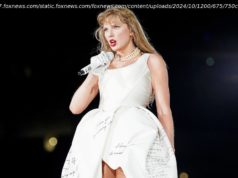Imagine this: you’re a participant in a televised game show, and you’ve made it all the way to the final round. After you…
Imagine this: you’re a participant in a televised game show, and you’ve made it all the way to the final round. After you spin your wheel or choose your letters or pick your question, the only thing standing between you and all the money of your dreams is a simple task — define the term « urban contemporary. »
Could you do it? Would you win that money?
Despite an enduring debate around the name, it is, for many, still unclear what precisely constitutes the genre of « urban contemporary, » and how or why the meaning of the term has migrated over the last several decades. Industry stakeholders have been pushing to change the name since at least 2018.
On June 5, in response to the rapidly increasing momentum behind the fight for Black lives in the U. S. and around the world, Republic Records announced that it would « remove ‘urban’ from the label’s verbiage in describing departments, employee titles and music genres, » citing their belief that « over time the meaning and connotations of ‘urban’ have shifted and developed into a generalization of Black people in many sectors of the music industry, including employees and music by Black artists. »
A few days later, on June 10, the Recording Academy — the parent organization of the Grammy Awards — announced that it would be renaming the Best Urban Contemporary Album and Best Rap/Sung Performance categories to Best Progressive R&B Album and Best Melodic Rap Album, respectively. The former includes « the more progressive elements of R&B and may include samples and elements of hip-hop, rap, dance, and electronic music. » The latter encompasses songs with « strong and clear presence of melody combined with rap cadence. »
Whether these new descriptions make things any clearer depends on how clear you thought they were before. Notably, Latin categories including the term were excluded from reconsideration. (Though not by everyone.)
But what is urban, contemporary or otherwise? What does eliminating the term accomplish? And why now? What is it about the fomenting of a new civil rights movement that has finally prompted institutions to act?
Coined in 1974 by legendary radio DJ and radio program director Frankie Crocker, « urban contemporary » was originally meant to describe the broad mix — of R&B, hip-hop, disco, rap, and everything « from James Brown to Dinah Shore » — that Crocker was playing at the newly created WBLS station in New York. Despite being one of the most popular radio formats of the era, Black music stations couldn’t attract the lucrative ad sales that would help them thrive.
« The urban category helped Black music cross over to mainstream charts, » says Gail Mitchell, executive director of R&B and hip-hop at Billboard. « There was a perception that Black radio wasn’t their audience, or that Black people didn’t buy from their brands. The urban label helped make the white executives more comfortable. »
With Crocker’s clever rebrand, Black music was newly marketable as a commodity that white companies could package for mainstream — i.






